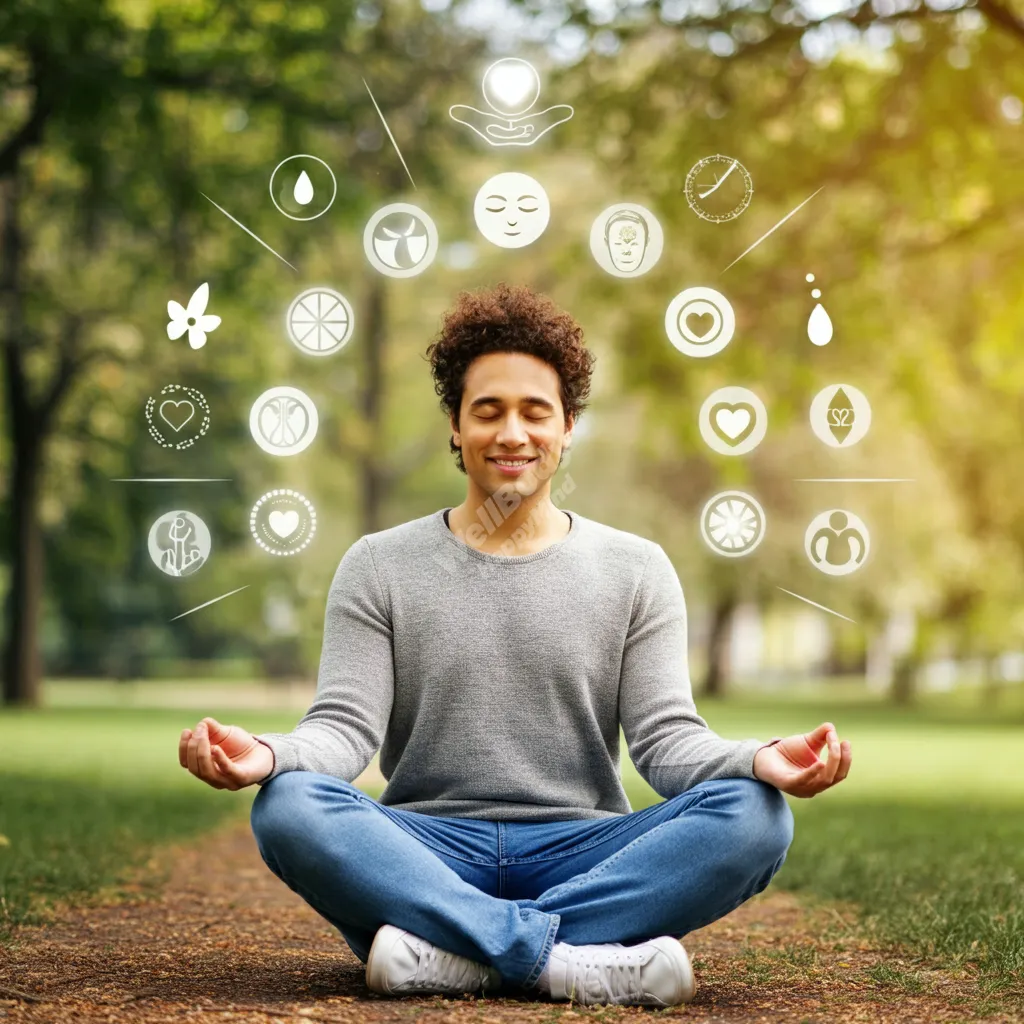How Can Positive Psychology Reinvent Your Self-Care Routine?

Have you ever wished for a self-care routine that makes you happier? That’s where positive psychology comes in. It’s a new way to boost your mental health and enjoy life more. But what is positive psychology? And how can it make your self-care better?
In today’s busy world, taking care of ourselves is more important than ever. Many of us find it hard to look after our mental health. Positive psychology offers new ways to improve your self-care and make your life better.
Understanding Positive Psychology
Positive psychology is a type of psychology that looks at what makes people happy and healthy. It’s different from regular psychology. Regular psychology often focuses on fixing problems. Positive psychology tries to help people use their strengths to live better lives.
The main ideas of positive psychology are:
- Focus on strengths, not weaknesses
- Create positive feelings and experiences
- Build skills to handle tough times
- Make good relationships
- Help people grow and be their best selves
Dr. Martin Seligman started positive psychology. People call him the “father of positive psychology.” In 1998, he said psychologists should study what makes life good, not just what makes people sick.
Since then, many people have used positive psychology. They’ve made new ways to help people in daily life. These methods can easily fit into your self-care routine.
Using positive psychology in your self-care can help you:
- Feel better overall
- Handle stress better
- Have better relationships
- Be more creative and get more done
- Feel more positive about life
Next, we’ll look at how you can use positive psychology to make your self-care routine better.
The Connection Between Positive Psychology and Self-Care
Positive psychology and self-care work well together. Regular self-care often focuses on relaxing and reducing stress. Positive psychology adds to this by helping you create good feelings and use your strengths.
Mixing positive psychology with self-care has many benefits:
- It helps you handle tough times better
- It makes you feel happier overall
- It helps you understand yourself better
- It improves your relationships
Studies show this approach works. A 2019 study found that using positive psychology made people feel better and less sad.
5 Ways Positive Psychology Can Reinvent Your Self-Care Routine
Let’s look at how you can use positive psychology in your daily life to make your self-care better.
1. Practicing Gratitude

Gratitude means noticing and appreciating good things in your life. It’s a big part of positive psychology. Here are some ways to practice gratitude:
- Write down three things you’re thankful for each day
- Thank people when they do something nice
- Think about what you’re grateful for each day
- Write down good things that happen and keep them in a jar
Practicing gratitude can make you feel more positive and happy with life. A 2015 study found that people who kept a gratitude journal felt more optimistic.
2. Cultivating Mindfulness

Mindfulness means paying attention to the present moment. It’s another important idea in positive psychology. Here are some easy mindfulness exercises:
- Focus on your breathing for 5 minutes
- Pay attention to how your body feels
- Really notice your food when you eat
- Take a walk and focus on what you see and feel
Mindfulness can help reduce stress and make you feel better overall. A 2018 study found that mindfulness practices improved people’s well-being.
3. Leveraging Character Strengths
Character strengths are good qualities that help you thrive. Using your strengths can make your self-care routine better. Here’s how to find and use your strengths:
- Take an online test to find your strengths
- Think about what activities you enjoy and do well
- Ask friends what they think your strengths are
Ways to use your strengths:
- Use your best strength in a new way each day
- Use your strengths to solve problems
- Do activities that use your strengths
- Help others using your strengths
4. Building Positive Relationships

Good relationships are very important for well-being. Here are ways to build better relationships:
- Listen carefully to others
- Show appreciation often
- Help others and ask for help when you need it
- Do fun activities with others
- Set healthy boundaries
Good relationships help you feel supported and happier. A 2017 study found that strong relationships were more important for health and happiness than exercise or diet.
5. Engaging in Flow Activities

“Flow” is when you’re so focused on an activity that you lose track of time. It’s a great way to improve your self-care. To find your flow activities, think about:
- What activities make you forget about time?
- What tasks challenge you but aren’t too hard?
- What activities make you feel good about yourself?
Here are some examples of flow activities:
| Type of Activity | Examples |
|---|---|
| Creative | Painting, writing, playing music |
| Physical | Dancing, rock climbing, yoga |
| Mental | Solving puzzles, learning a new language |
| Social | Having deep conversations, playing team sports |
| Nature | Gardening, hiking, watching birds |
Overcoming Challenges in Implementing Positive Psychology in Self-Care

You might face some challenges when trying to use positive psychology in your self-care:
- Not having enough time
- Finding it hard to stick to new habits
- Doubting if it will work
- Feeling overwhelmed by new practices
Here’s how to overcome these challenges:
- Start small: Try one new thing at a time
- Use reminders: Set alarms or use apps to help you remember
- Be patient: It takes time to see results
- Get support: Join a group or find a friend to do it with you
- Make it fit your life: Change the practices to work for you
Measuring Progress: Tracking Your Positive Psychology Self-Care Journey

Keeping track of your progress can help you stay motivated. Here are some ways to do this:
- Write in a journal about how you feel
- Use apps that track your mood
- Set goals and check them regularly
- Think about how you’re doing through meditation or writing
- Use well-being scales to check your progress
Remember to:
- Notice which practices help you the most
- Try different things to see what works best
- Be flexible and willing to change your approach
- Celebrate small wins
Remember, the goal is to make progress, not to be perfect. By using positive psychology in your self-care routine, you’re building a foundation for long-term happiness.
Conclusion

Using positive psychology can make your self-care routine much better. It can help you feel happier and more fulfilled. By practicing gratitude, mindfulness, using your strengths, building good relationships, and finding flow activities, you’re not just reducing stress. You’re actively building a happier life.
Remember, becoming happier and more positive is a journey. It’s okay to face challenges. Be patient with yourself and keep trying. Start small, be kind to yourself, and celebrate every bit of progress.
Everyone is different, so find what works best for you. Don’t be afraid to try different things. The goal is to find a routine that makes you feel good and brings more joy to your life.
By taking care of your mental and emotional health, you’re not just helping yourself. You’re also positively affecting those around you. As you become more resilient and positive, you’ll likely find that your relationships improve, your work becomes more satisfying, and you’re better at handling life’s challenges.
Why not start today? Choose one practice from this article and try it for a week. Whether it’s writing down things you’re grateful for, practicing mindfulness, or doing an activity you love, take that first step towards a happier life. Your future self will thank you!



